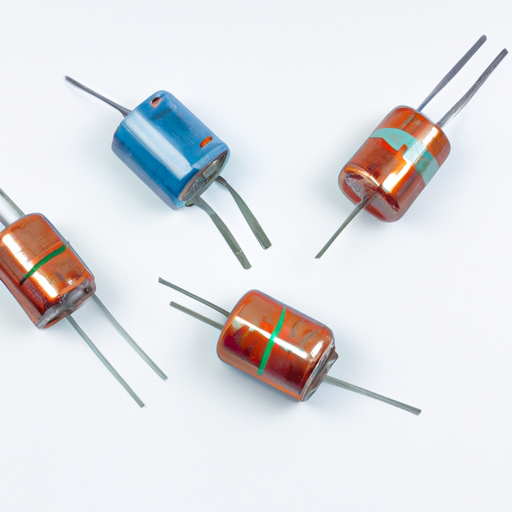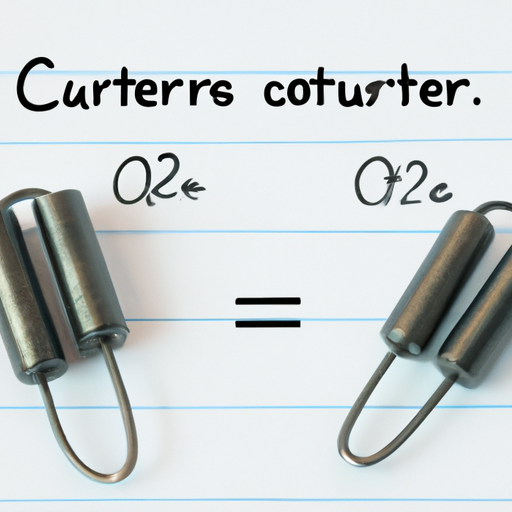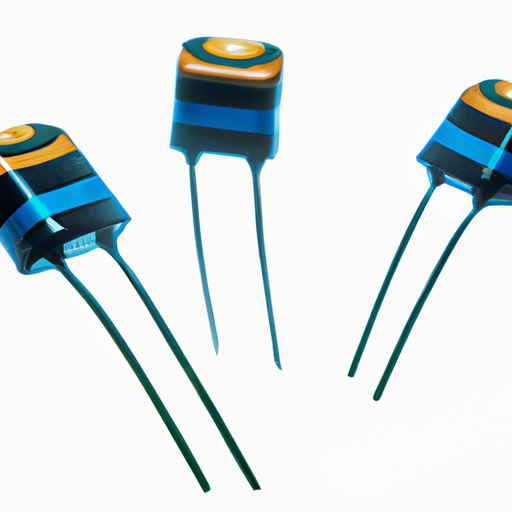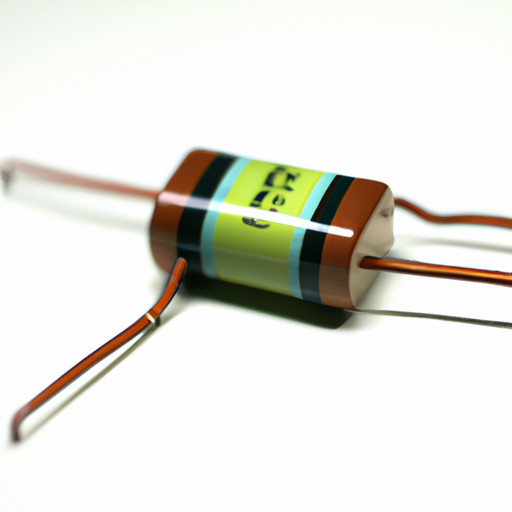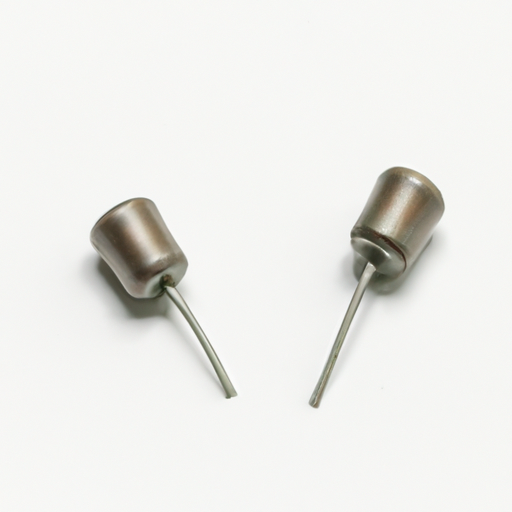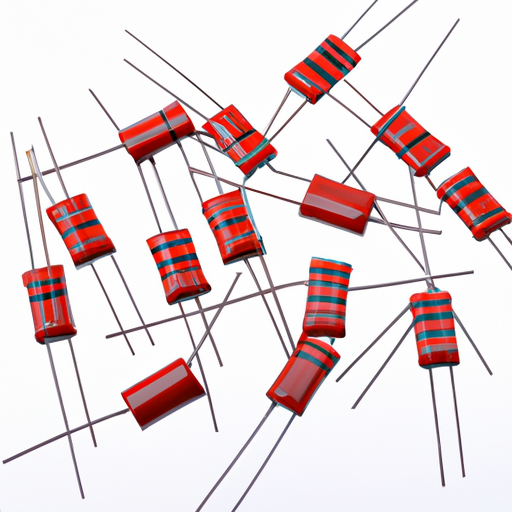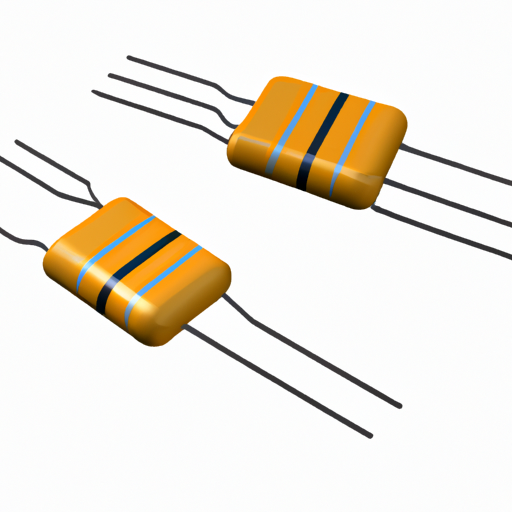Popular High-Voltage Capacitor Product Models
I. Introduction
High-voltage capacitors are essential components in various electronic and electrical systems, playing a critical role in energy storage, filtering, and power management. These capacitors are designed to operate at voltages significantly higher than standard capacitors, making them indispensable in applications ranging from power electronics to telecommunications and medical devices. This article aims to provide an overview of high-voltage capacitors, their applications, popular product models, and factors to consider when selecting them.
II. Understanding High-Voltage Capacitors
A. What are High-Voltage Capacitors?
High-voltage capacitors are capacitors that can handle voltages typically above 100V, with some models rated for thousands of volts. They are classified based on their voltage ratings and the materials used in their construction.
1. Voltage Ratings and Classifications
High-voltage capacitors are categorized into different classes based on their voltage ratings, which can range from a few hundred volts to several kilovolts. The classification helps engineers select the appropriate capacitor for specific applications.
2. Types of High-Voltage Capacitors
High-voltage capacitors come in various types, each with unique characteristics:
Ceramic Capacitors: Known for their stability and reliability, ceramic capacitors are often used in high-frequency applications.
Film Capacitors: These capacitors offer excellent performance in terms of low ESR and high insulation resistance, making them suitable for power electronics.
Electrolytic Capacitors: Typically used for energy storage, electrolytic capacitors can handle high capacitance values but have limitations in voltage ratings.
Tantalum Capacitors: Known for their compact size and high capacitance, tantalum capacitors are used in applications where space is a constraint.
B. Key Specifications and Parameters
When selecting high-voltage capacitors, several key specifications and parameters must be considered:
1. **Capacitance Value**: The amount of charge a capacitor can store, measured in farads (F).
2. **Voltage Rating**: The maximum voltage a capacitor can handle without breaking down.
3. **Temperature Coefficient**: Indicates how the capacitance value changes with temperature.
4. **Equivalent Series Resistance (ESR)**: A measure of the resistance a capacitor presents to alternating current (AC), affecting its efficiency.
5. **Lifetime and Reliability**: The expected operational lifespan of the capacitor under specified conditions.
III. Applications of High-Voltage Capacitors
High-voltage capacitors are utilized in a wide range of applications, including:
A. Power Electronics
1. **Inverters and Converters**: High-voltage capacitors are crucial in converting DC to AC and vice versa, ensuring efficient energy transfer.
2. **Energy Storage Systems**: They store energy for later use, playing a vital role in renewable energy systems like solar and wind.
B. Industrial Equipment
1. **Motor Drives**: High-voltage capacitors help manage the power supply to electric motors, improving efficiency and performance.
2. **Welding Machines**: They provide the necessary energy bursts for welding processes, ensuring strong welds.
C. Telecommunications
1. **Signal Processing**: High-voltage capacitors are used in signal processing circuits to filter and stabilize signals.
2. **RF Applications**: They are essential in radio frequency applications, where high voltage and frequency are involved.
D. Medical Devices
1. **Imaging Equipment**: High-voltage capacitors are used in MRI and X-ray machines, providing the necessary power for imaging.
2. **Therapeutic Devices**: They are also found in devices that require precise energy delivery for therapeutic purposes.
IV. Popular High-Voltage Capacitor Product Models
A. Overview of Leading Manufacturers
Several manufacturers are known for producing high-quality high-voltage capacitors. Some of the leading brands include:
1. **Vishay**
2. **KEMET**
3. **Panasonic**
4. **Cornell Dubilier**
5. **EPCOS (TDK)**
B. Detailed Examination of Popular Product Models
1. Vishay 1812 Series
Specifications: Voltage ratings up to 1,000V, capacitance values ranging from 0.1µF to 10µF.
Applications: Commonly used in power supply circuits and energy storage applications.
2. KEMET A700 Series
Specifications: Voltage ratings up to 1,500V, with capacitance values from 0.1µF to 10µF.
Applications: Ideal for use in industrial equipment and power electronics.
3. Panasonic ECW Series
Specifications: Voltage ratings up to 630V, capacitance values from 0.1µF to 10µF.
Applications: Suitable for audio and video equipment, as well as power supply circuits.
4. Cornell Dubilier 940C Series
Specifications: Voltage ratings up to 1,000V, capacitance values from 0.1µF to 10µF.
Applications: Used in motor drives and welding machines.
5. EPCOS B25671 Series
Specifications: Voltage ratings up to 1,000V, with capacitance values from 0.1µF to 10µF.
Applications: Commonly found in telecommunications and RF applications.
V. Factors to Consider When Choosing High-Voltage Capacitors
When selecting high-voltage capacitors, several factors should be taken into account:
A. Application Requirements
Understanding the specific requirements of the application is crucial. This includes voltage ratings, capacitance values, and the operating environment.
B. Environmental Conditions
Consider the temperature, humidity, and potential exposure to chemicals or other harsh conditions that may affect capacitor performance.
C. Cost Considerations
Evaluate the budget for the project, as high-voltage capacitors can vary significantly in price based on specifications and manufacturer.
D. Availability and Lead Times
Check the availability of the chosen capacitor models and the lead times for delivery, especially for critical applications.
VI. Future Trends in High-Voltage Capacitor Technology
The field of high-voltage capacitors is evolving, with several trends shaping the future:
A. Advancements in Materials and Manufacturing
New materials and manufacturing techniques are being developed to enhance the performance and reliability of high-voltage capacitors.
B. Increasing Demand for Energy Efficiency
As industries strive for greater energy efficiency, the demand for high-voltage capacitors that can operate effectively in energy-saving applications is on the rise.
C. The Role of High-Voltage Capacitors in Renewable Energy Systems
High-voltage capacitors are becoming increasingly important in renewable energy systems, where they help manage energy storage and distribution.
D. Innovations in Capacitor Design and Performance
Ongoing research and development are leading to innovations in capacitor design, resulting in improved performance, smaller sizes, and enhanced reliability.
VII. Conclusion
High-voltage capacitors are vital components in a wide range of applications, from power electronics to telecommunications and medical devices. Understanding the various types, specifications, and popular product models is essential for selecting the right capacitor for specific needs. As technology continues to advance, high-voltage capacitors will play an increasingly important role in the future of energy management and electronic systems.
VIII. References
- Manufacturer datasheets and product specifications
- Industry publications on capacitor technology
- Research articles on high-voltage capacitor applications and advancements
This comprehensive overview of high-voltage capacitors and their popular product models provides valuable insights for engineers, designers, and anyone interested in the field of electronics. By understanding the key specifications, applications, and future trends, stakeholders can make informed decisions when selecting high-voltage capacitors for their projects.

